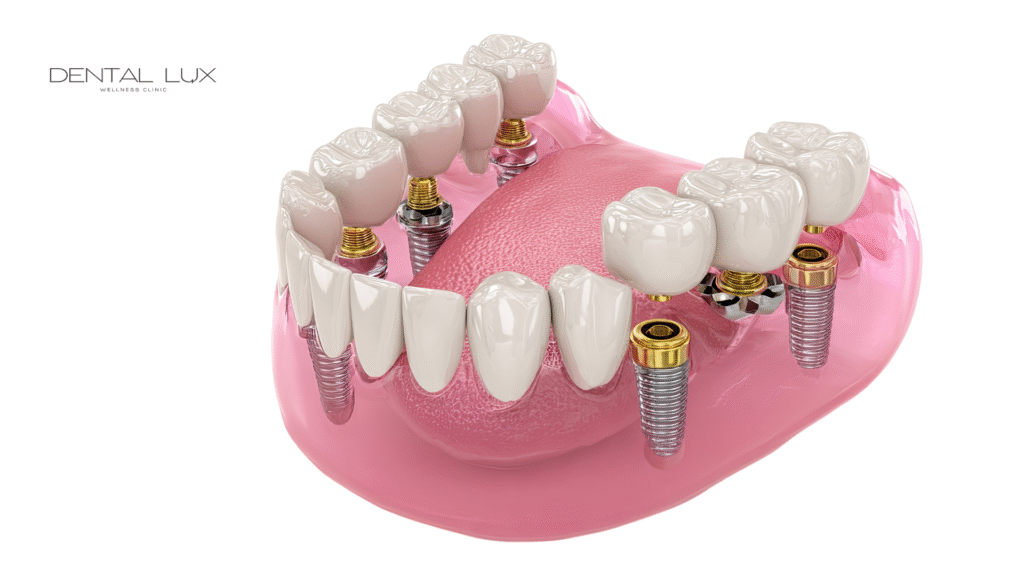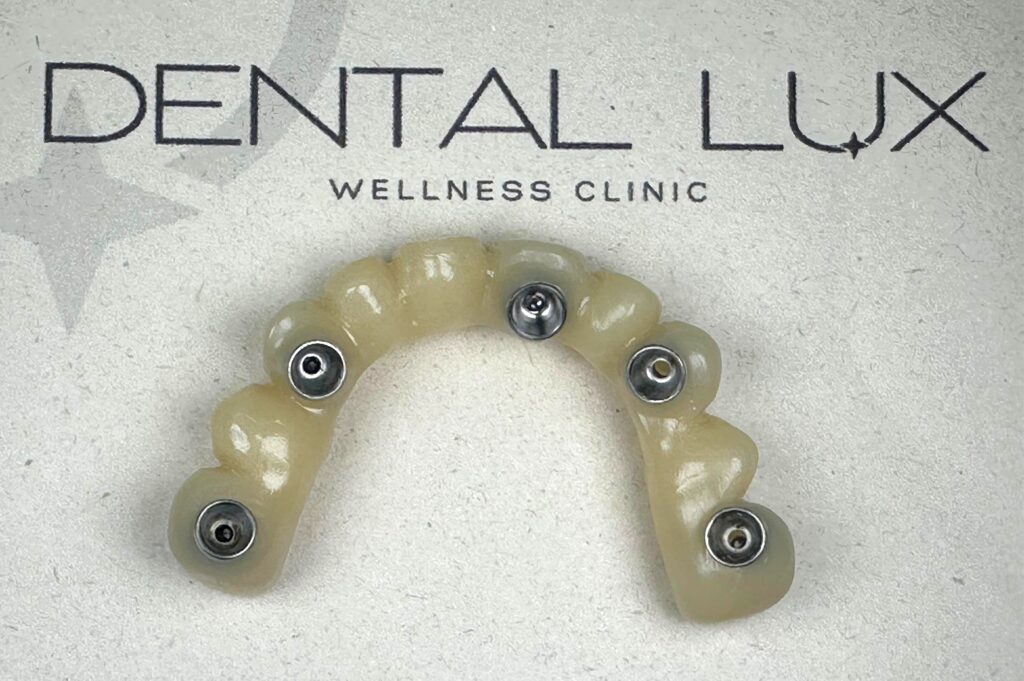Losing a tooth not only affects the aesthetics of your smile, it can also alter your oral health, your bite, and your confidence. That’s why dental implants have become a safe, durable, and highly effective solution for restoring lost teeth.
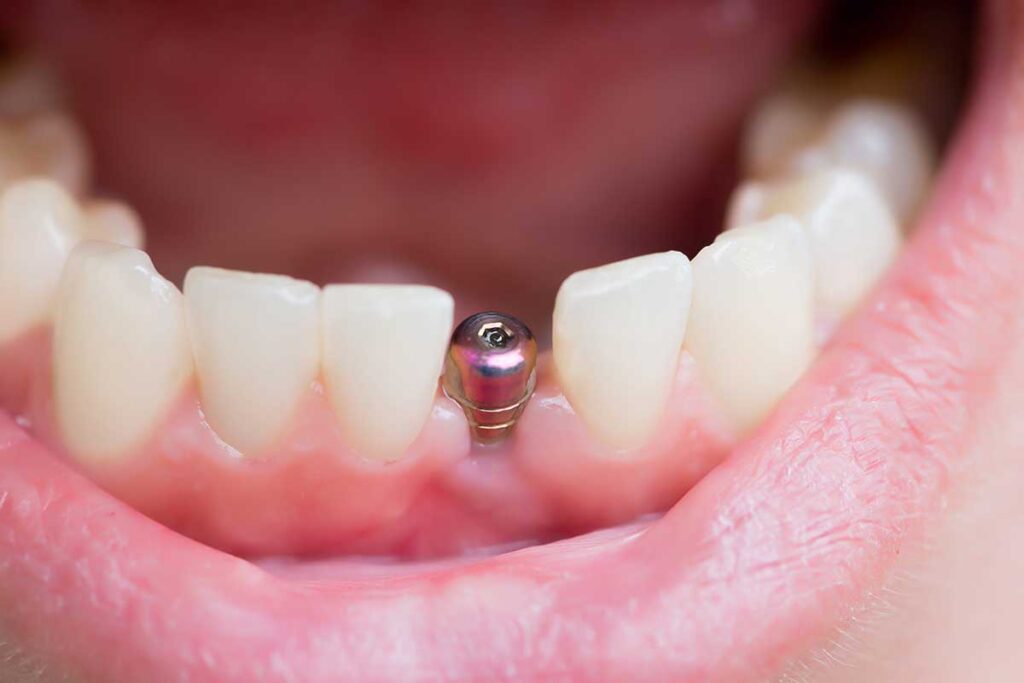
What is a dental implant?
A dental implant is a small piece of titanium or zirconium that is surgically inserted into the maxillary or mandibular bone to replace the root of a lost tooth. This implant acts as a firm anchor on which a crown, bridge, or dental prosthesis is subsequently placed.
In other words, it replaces not only the visible part of the tooth (the crown), but also its base, restoring stability and functionality to the patient’s mouth.
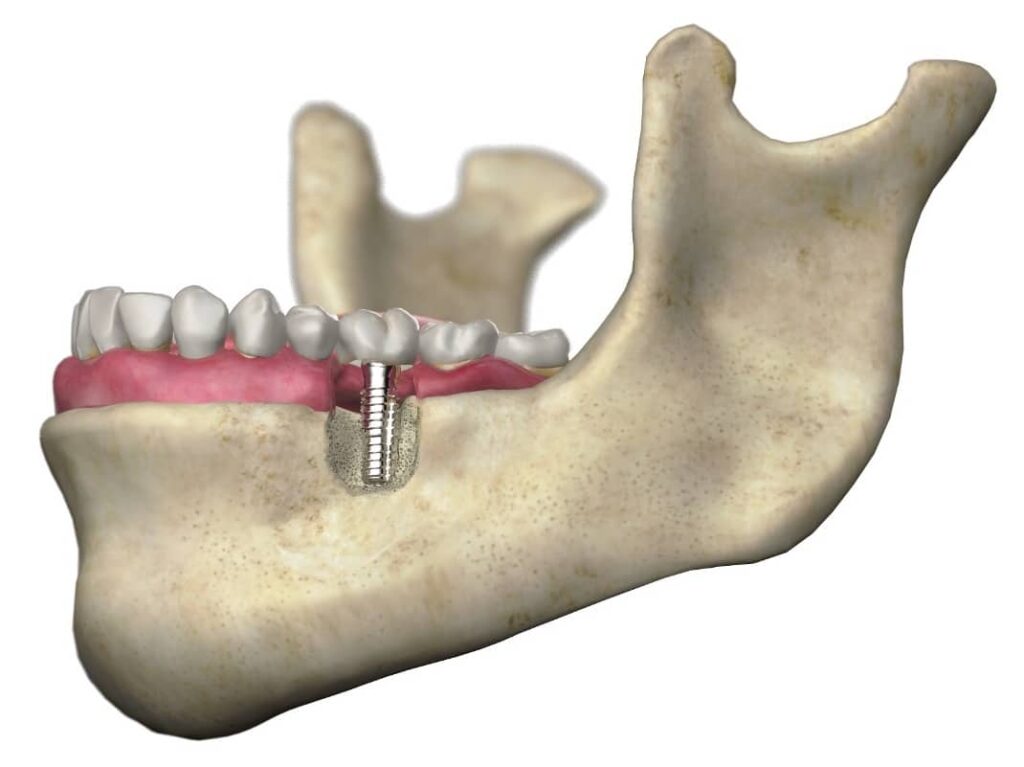
How does a dental implant work?
The functioning of a dental implant is based on a biological process called osseointegration, which consists of the natural union between the implant and the patient’s bone. After being placed, the implant needs time to heal, during which the bone grows around the implant and firmly fixes it in place.
This process can take between 3 and 6 months, depending on the case. Once osseointegration is complete, the final restoration (crown or prosthesis) is placed on the implant.
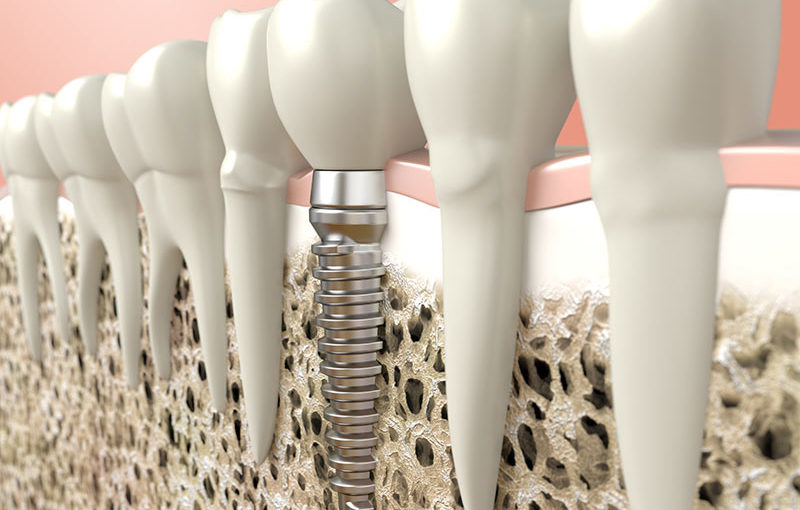
Most common materials used in dental implants
• Titanium: This is the most commonly used material due to its high biocompatibility, strength, and durability. It does not cause allergic reactions and performs excellently with bone tissue.
• Zirconium: This is a white metal alternative, ideal for patients with metal allergies or high aesthetic requirements. Although less common, it offers good results.
Advantages of dental implants
• Restore chewing function and aesthetics.
• Prevent bone loss in the jaw.
• Improve confidence when speaking and smiling.
• They are a durable solution with good maintenance.
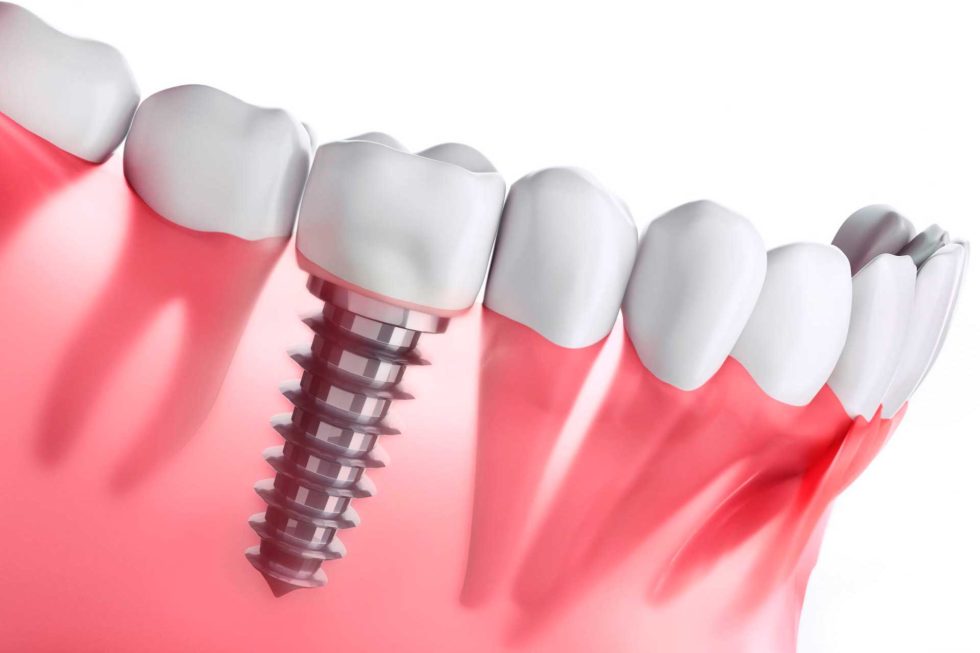
Conclusion
Dental implants are one of the best alternatives for replacing missing teeth, as they perfectly mimic the structure of a natural tooth. If you are considering this option, it is best to see a specialist who can assess your case and recommend the appropriate treatment.

